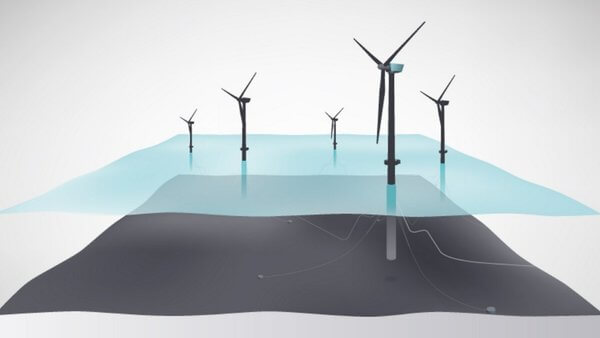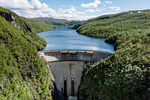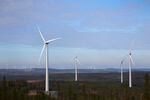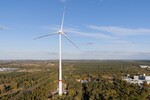News Release from windfair.net
Wind Industry Profile of
Norway: There's Another Way
The Norwegian State Pension Fund is the largest sovereign wealth fund in the world and manages assets of around 895 billion euros. Its task is to invest the country's state oil revenues to provide for the time when oil reserves run out. In addition, the government may use up to three percent of the fund volume p.a. for social purposes.
The fund, which has also invested in equities for almost 20 years, is subject to ethical, social and ecological rules, so that e.g. investments in the arms or tobacco industries are excluded. And coal industry is increasingly falling into these areas as well. As early as 2015, the Norwegian parliament decided to sell all holdings in mining companies and power companies whose turnover comes from coal at 30 percent or more.
Since then, these requirements have been successively tightened. Since March, no more investments have been made in shares of oil and gas production companies in order to protect the fund's money from fluctuations in the volatile raw materials market. Exceptions are, however, companies such as Equinor, owned by the Norwegian government, that have their own renewable energy sector.

Equinor, until recently known as Statoil, is involved in the Hywind floating wind project (Image: Equinor)
Since last week, the fund's money may no longer be invested in companies that produce more than 20 million tons of coal annually for coal-fired power plants or have more than 10,000 megawatts of coal-fired electricity capacity. These include, for example, the German companies RWE and Uniper.
Instead, the government in Oslo wants to promote investments in renewables. Up to now, nearly 60 billion Norwegian Crowns (6.2 billion €) have been invested directly in renewable energy projects. This sum will now be doubled. In addition, the fund may now also invest in infrastructure projects for renewable energies and non-listed companies. So far fund money could only be invested into stock exchange-listed projects and enterprises directly within the range of renewables, as the pv magazine reports.
However, the Norwegian government stressed that this should not be done solely for the sake of goodness or fear of climate change - but for economic reasons. Already the measures in March were accompanied by the statement that there is still believe in the long-term meaning of oil - no miracle, as Norway is still one of the largest oil exporters of the world.
And the measures that have now been adopted are also an investment strategy for the fund. At the same time, however, this means that renewables have become interesting for the financial sector. "These investments are subject to the same profitability and transparency requirements as the fund's other investments," Norwegian Finance Minister Siv Jensen made clear.
The oil price is also vulnerable to losses, which is to be reduced by diversifying the fund's energy portfolio. It is therefore still too early to celebrate because the sums invested in the fossil industry are still too high. But the development points into a clear direction.
- Author:
- Katrin Radtke
- Email:
- press@windfair.net
- Keywords:
- Norway, state pension fund, wealth, money, oil, gas, coal, renewable energy, Equinor, Hywind






